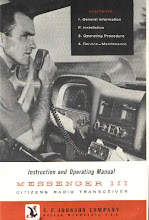Ever since my late teens I have held in high
 esteem an institution which then to me was substantially distant. In those days the very words ‘jazz club’ conjured in my nascent bebop sensibility a paradisiacal mélange of yes, goatee beards, strong liquor, black turtle necks, debonair double-bass players, Gitanes and Parisian rain. I may, at that time, never have heard any jazz apart from the pale imitations offered by the British crossover combo Working Week, but that factor did not prevent me from thinking that Miles Davis, Chet Baker et al were the epitome of cool.
esteem an institution which then to me was substantially distant. In those days the very words ‘jazz club’ conjured in my nascent bebop sensibility a paradisiacal mélange of yes, goatee beards, strong liquor, black turtle necks, debonair double-bass players, Gitanes and Parisian rain. I may, at that time, never have heard any jazz apart from the pale imitations offered by the British crossover combo Working Week, but that factor did not prevent me from thinking that Miles Davis, Chet Baker et al were the epitome of cool.Coupled with my francophile tendencies, which once more were a fantasy projected outward on the basis of a few encounters with nouvelle vague and an undergraduate reading of Sartre’s Nausea, the completed picture would have me relocated to the famous Tabou club or the Hot Club de Paris, where the legendary Boris Vian would introduce Miles on stage, while at the bar the legendary Juliette Greco would exchange repartee and cigarette smoke with the legendary Jeanne Moreau.
The lure of this image has over the years been compounded by my actually getting to hear, see and visit some of the sounds, images and places which constituted the raw material of my imagined spatio-temporal haven. I came to possess a CD (purloined!) which includes previously unreleased recordings of Vian himself playing at the Tabou; I can listen to Davis’ soundtrack for Louis Malle’s film L’ascenseur pour l’echaffaud, originally produced by Vian; I can combine a recording of Martial Solal’s breathtaking soundtrack for Godard’s A bout be souffle with the (very important detail: non-subtitled) video recording I also possess. But this is as close to a jazz club as I believe I shall ever come. A jazz club which takes place entirely within my head, a Tabou of the imaginary, a Hot Club of the simulacrum. The jazz club does not exist.
In a sedate northeastern city of France I once attended its 'Blue Note' jazz club. Four or five couples canoodled on the ample sofas while my brother and I bravely essayed our pina coladas and, between sets, endured - I’m not making this up - The Eagles. The Eagles are what one might call anathema to jazz, as are canoodling couples. The Eagles and canoodling couples deserve one another. But the jazz club belongs to soloists both onstage and off. That is why the choice of the jazz club as meeting place for witches in the film Bell, Book and Candle is so apt. To be a witch one must keep one’s distance from the human, even whilst living amongst them as a nomad or a feline.
The theme of otherness associated with the jazz club is made even more emphatic in the film Funny Face where, in an amusing pastiche both of existentialism and the St-Germain-des-Pres, Audrey Hepburn is seduced by the ‘empathicalist’ philosopher at the club, where adherents swap bon mots and body fluids with equal empathicalist abandon. Both films feature the jazz club as potentially demonic, dangerous and otherworldly.
The jazz club is outside time. It goes on all night. The St Germain des Pres is timeless. It’s a Dexter Gordon solo, an Art Blakey drumroll. That is why Tavernier’s film Round Midnight is so effective. It is aware that jazz is more than just a sound, but that it is also a time, many times, and a place, many places.
Blue Note records knew this too when, putting on record the inimitable voice of Pee-Wee Marquette, introducing Art Blakey at the Birdland in New York, saying “When you listen to the record . . . you can say that’s my hands there on that record, that I dug down at Birdland”.
The Chilean filmmaker Raúl Ruiz, in a remarkable little book, The Poetics of Cinema, mentions the Portuguese word saudade, which means “a nostalgia for what might have occured”. For me the word aptly describes my engagement with the myth of the jazz club. The jazz club is an iconic space-time where one must don a mask (goatee, turtle-neck, Audrey Hepburn poise, Juliette Greco coiffure, Belmondo Gitane), take a performance enhancing pharmaceutical supplement, and try to avoid canoodling with anyone human.
The jazz club does not exist.
